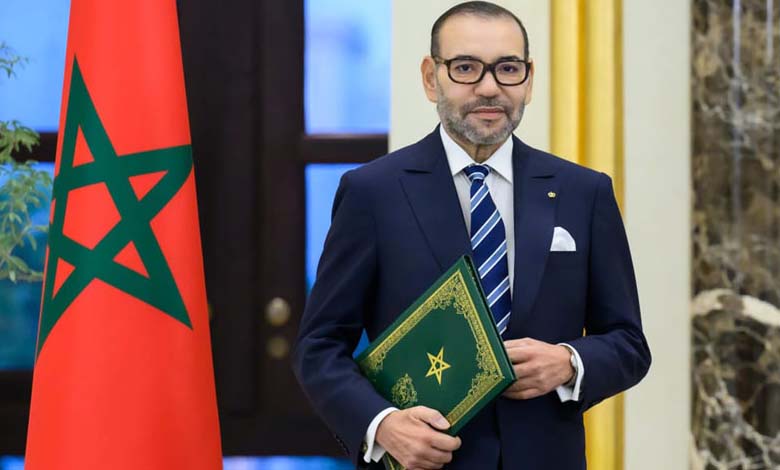King Mohammed VI’s Vision: Morocco’s Rise through Justice and Balance

When King Mohammed VI took the podium of Parliament on October 10, 2025, to open the new legislative year, all eyes were on Rabat with unusual anticipation. The world was not expecting a ceremonial speech, but rather a strategic signal from a leader known for his stability and long-term vision in Africa and the Arab world.
The royal address lived up to these expectations: a foundational text outlining Morocco’s vision for the next decade, confirming that the country has moved beyond the phase of a “stable model” to become a fully integrated national project rooted in balanced development and lasting justice.
-
King Mohammed VI Injects New Energy into Constitutional Institutions
-
Italy Commends Progress and Stability in Morocco Under the Leadership of King Mohammed VI
Beyond Protocol: A Speech of Transformation
Although delivered in a constitutional context, the king’s speech extended beyond formality into clear political and developmental substance. The monarch emphasized that, in the coming phase, success will no longer be measured by the number of reforms or laws, but by their tangible impact on citizens’ lives.
Real transformation, the king stressed, begins when programs produce concrete results and initiatives translate into genuine improvements in education, healthcare, employment, and living standards. It was a firm message to all institutions: the time of promises is over; the era of governance measured by outcomes, not intentions, has begun.
-
The Mohammed VI Mosque in Conakry Reflects Morocco’s Efforts to Fortify Africa Against Extremism
-
Humanitarian Gesture from King Mohammed VI for the Benefit of Palestinian Students
“An Emerging Morocco”: From Slogan to State Philosophy
The royal address revived the concept of “An Emerging Morocco,” first introduced in the 2024 Throne Speech, turning it into the intellectual foundation of the country’s new development model.
In this vision, social and territorial justice are not merely moral imperatives but the very foundations of state cohesion and strength. Progress, as the king explained, is measured by achievements not only in major cities but also in villages, mountains, and oases — by the fairness of development as a driver of national unity and a source of legitimacy for the modern state.
-
Sarkozy: The strength of Morocco lies in the intelligence of King Mohammed VI in reconciling identity and modernity
-
More than one file on the table of King Mohammed VI and Sánchez at the summit meeting
From Administration to the “Mind of the State”
One of the key points of the speech was the king’s call for a shift in mindset — from a culture of instruction to a culture of results. This vision encourages Morocco to evolve from an implementing administration into a thinking and innovating state, from rigid bureaucracy to accountable institutions.
In doing so, the monarch establishes a new form of legitimacy — not merely institutional, but based on performance and achievement. Competence and efficiency become the foundation of trust between the state and society.
-
FOPREL awards “Esquipulas Peace Prize” to HM King Mohammed VI
-
New Diplomatic Achievement for Morocco with Its Election as Vice-President of the Conference on Landlocked Developing Countries
Responsible Modernization and the Balance between Progress and Identity
In an era of rapid digital and environmental change, King Mohammed VI emphasized the importance of responsible modernization — investing in digitalization and data-driven governance without compromising national identity.
His call to enforce coastal protection laws and promote mountain development was not a short-term directive but a comprehensive vision — environmental, economic, and social — that integrates territorial justice into national sovereignty. The green economy thus becomes a lever for wealth creation and employment.
-
“Shared Destiny” Presents a New Vision for Moroccan-French Relations
-
Washington urges U.S. companies to invest in Morocco’s Sahara
Leadership as a Moral Value
The king reiterated that politics cannot be separated from ethics, and governance cannot endure without a moral compass. With this reminder, he redefined leadership in the age of globalization — as one rooted in integrity, responsibility, and human commitment.
A Message to Morocco and the World
Observers note that the speech was not addressed solely to Parliament but to the entire international community. Through it, Morocco presented itself as a model of stability and gradual reform in a turbulent region — a nation relying on its institutions and popular legitimacy, striving for justice through opportunity, discipline, and execution rather than aid.
The message was unambiguous: Morocco rises not through wealth alone, but through fairness, discipline, and a renewed political will.
-
New Diplomatic Achievement for Morocco with Its Election as Vice-President of the Conference on Landlocked Developing Countries
-
Urgent relief aid from the King of Morocco to Gaza via a special route
Toward Institutional Maturity
The October 10, 2025 address will remain a defining moment in Morocco’s political history. It marks a shift from reform to maturity, from promises to measurable impact.
It embodies what may be called the “mind of the emerging state” envisioned by King Mohammed VI — a balanced, just, efficient, and confident state navigating a changing world.
In a time when nations seek models that combine historical legitimacy with modern effectiveness, Morocco stands out as a positive exception — a country that understands justice not as the end of the journey, but as the path itself toward dignity, sovereignty, and sustainable development.












